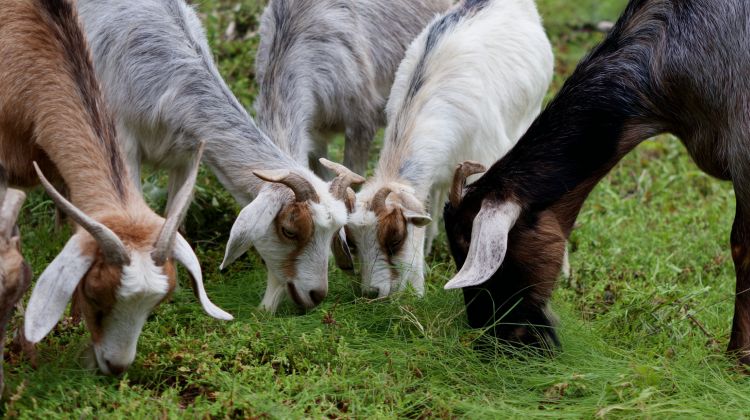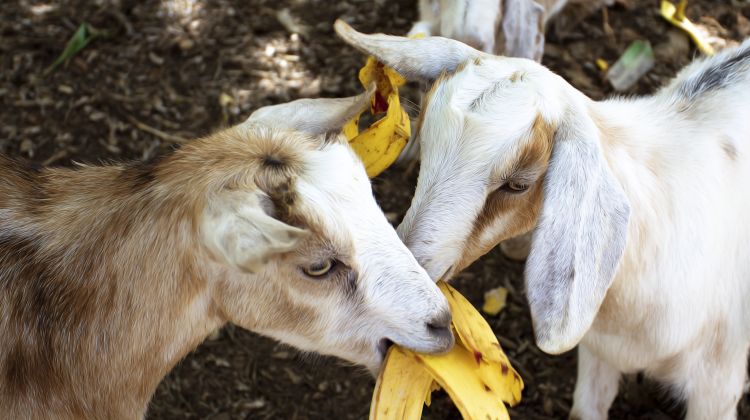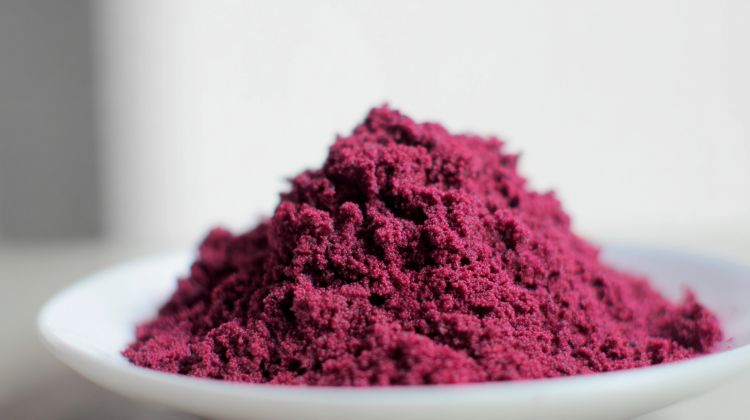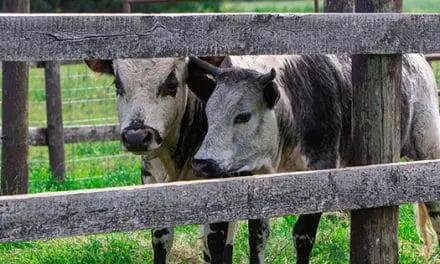If you’re new to raising goats or considering adding them to your homestead, one of the first questions you’ll ask is: what do goats eat? While goats have a reputation for eating just about anything, the truth is a bit more specific — and far more important to get right. A balanced diet is crucial for their health, productivity, and longevity.
Let’s explore what goats really eat, what they shouldn’t eat, and how to keep them thriving on a self-sufficient homestead.
This isn’t just about nutrition — it’s about behavior, too. A well-fed goat is a calm, productive animal. A poorly fed one will test fences, become aggressive, or fall ill. When their dietary needs are met, goats become one of the most rewarding and resourceful additions to your farm.
The Natural Diet of Goats
Goats are browsers, not grazers. This means they prefer to eat leaves, shrubs, weeds, bark, and twigs over grass. Unlike cows or sheep, goats naturally head for the rougher stuff, often reaching up rather than down.
In the wild or in large paddocks, goats will seek out:
- Brush and woody plants
- Tall weeds
- Tree bark and low-hanging branches
- Vines and brambles
This diverse diet helps goats meet their nutritional needs and also gives them natural parasite resistance due to the tannins in many wild plants.
A good browsing area mimics their natural feeding behavior and helps prevent boredom, which can lead to destructive habits. Goats are curious animals, and providing them with diverse forage improves both their nutrition and mental stimulation.
 Hay: The Foundation of a Goat’s Diet
Hay: The Foundation of a Goat’s Diet
For domestic goats, high-quality hay forms the base of their diet — especially in winter or when pasture is unavailable. Goats need fiber-rich roughage to keep their rumen (a part of their digestive system) healthy.
Best hay types for goats:
- Grass hay (timothy, orchard grass, brome)
- Legume hay (alfalfa or clover — higher in protein and calcium, great for pregnant or lactating does)
Hay should be clean, mold-free, and stored in a dry place. Goats are picky about musty or dusty hay — and spoiled hay can cause serious health issues.
Hay is also useful for encouraging slow, steady eating throughout the day. Goats often prefer frequent small meals, and having hay always available supports that instinct while keeping their digestive system in motion and functioning properly.
Grain and Pellets: Use With Caution
Grains and pelleted feeds can supplement a goat’s diet, but they should not be the main component. Too much grain can cause bloat, acidosis, or urinary calculi (especially in bucks and wethers).
Grains can be useful for:
- Growing kids
- Pregnant and nursing does
- Goats in heavy work or underweight
When feeding grains, opt for goat-specific mixes and avoid overfeeding. Always introduce new feeds gradually.
Too often, new goat owners over-rely on grain as a way to “spoil” their animals or ensure fast growth. But the real key to long-term health lies in balanced forage, fiber, and minerals — not excessive carbs. Think of grain as a tool, not a crutch.
Minerals and Salt
Goats need access to loose minerals formulated specifically for goats. These provide vital nutrients like copper, selenium, and zinc — deficiencies can lead to hair loss, weak hooves, and poor growth.
Avoid using block minerals intended for cattle or sheep. Sheep mineral blocks lack copper, which goats need in higher amounts.
Also provide a salt lick or loose salt, and ensure fresh, clean water is always available.
Providing the right minerals supports healthy breeding, lactation, immune function, and even coat quality. Place mineral feeders in dry areas under shelter to keep them usable year-round — goats will seek them out instinctively when their body needs a boost.
 What Can Goats Eat as Treats?
What Can Goats Eat as Treats?
Goats love a variety of healthy treats. These can be great for training, bonding, or just enrichment.
Some safe goat-friendly snacks include:
- Carrot slices
- Apple pieces (no seeds)
- Banana peels
- Pumpkin and squash
- Sunflower seeds
- Blackstrap molasses (in moderation)
As with any treat, moderation is key. Avoid sugary snacks and never let treats replace their core diet.
Treats can be especially useful for encouraging shy goats to socialize or for rewarding animals during milking or medical care. However, avoid hand-feeding treats too often, as it can lead to pushy or aggressive behavior over time.
What Should Goats NOT Eat?
Despite the myth, goats should not eat everything. Some plants and household items are toxic or dangerous.
Avoid feeding:
- Azaleas, rhododendrons, oleander
- Hemlock, nightshade, and foxglove
- Cherry, peach, or plum leaves (especially wilted)
- Chocolate, caffeine, or moldy bread
- Lawn clippings (ferment quickly and cause bloat)
- Plastic, metal, or fabric (they might just chew it, but it’s harmful)
Always check your pasture and fencing areas for toxic plants before turning goats out.
Goats are curious nibblers, which is why it’s important to keep dangerous materials out of reach. They often explore with their mouths, so even a forgotten garden glove or wire tie could spell trouble if left in their space.
Do Goats Need Pasture?
Goats thrive when they have space to browse and move. While they don’t need traditional pasture like sheep, having access to diverse plant life is beneficial.
A well-fenced area with trees, weeds, and brush provides:
- Natural nutrition
- Parasite resistance
- Mental stimulation
- Exercise
Rotational browsing is ideal — it gives plants time to recover and helps break the parasite cycle.
Pasture also gives goats a chance to mimic natural behaviors like climbing, exploring, and foraging, which keeps them mentally sharp and reduces stress. Goats without adequate outdoor access often become bored and problematic.
 Extras You Can Feed Goats
Extras You Can Feed Goats
Beyond their regular diet, goats can benefit from a few thoughtful additions to support health, especially in changing seasons or special situations.
Some helpful extras include:
- Beet pulp (soaked, as a fiber-rich feed boost)
- Chopped kelp (for minerals and iodine)
- Brewer’s yeast (rich in B-vitamins and protein)
- Electrolyte powders (especially in hot weather or after stress)
- Apple cider vinegar (added to water to improve digestion and immunity)
These extras aren’t required for every goat, but they can make a difference for does in milk, recovering animals, or growing kids. Introduce slowly and monitor for any digestive upset.
When used wisely, these additions can improve digestion, boost energy, and help goats thrive through seasonal shifts, illness recovery, or breeding cycles.
Final Thoughts
Goats are hardy, curious, and rewarding animals for any self-sufficient homestead. But to keep them productive and healthy, understanding their dietary needs is essential.
Focus on high-quality hay, access to forage, targeted supplementation, and safe treats. Avoid overfeeding grain, watch for toxic plants, and ensure they always have fresh water and minerals.
When you feed goats well, you’re not just sustaining them — you’re investing in the future of your homestead. Healthy goats mean milk, meat, fertilizer, brush control, and a lively energy that brings joy to any farm.
Growing Kunekune Pigs: A Practical Guide for Self-Reliant Homesteads
How to Get 295 Pounds of Extra Food for Just $5 a Week (Video)


 What Can Goats Eat as Treats?
What Can Goats Eat as Treats? Extras You Can Feed Goats
Extras You Can Feed Goats











